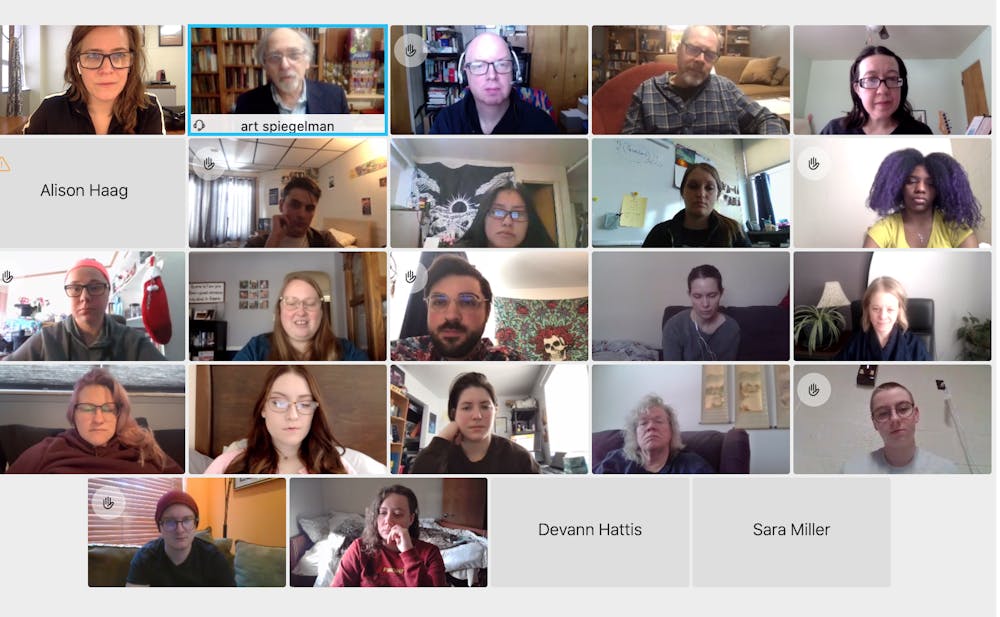Pultizer Prize winning author of "Maus" speaks about its relevance today
Art Spiegelman, author and illustrator of “Maus," virtually spoke to Central Michigan University students as part of the College of Liberal Arts and Social Sciences Critical Engagement Series.
“Maus” is a Pulitzer Prize winning graphic novel that tells the story of the Holocaust through the eyes of Spiegelman’s father, a Polish Holocaust survivor.
In the graphic novel, Jewish people are portrayed as mice, Germans as cats and Polish people as pigs. Through the narrative, Spiegelman explores his relationship with his father and the generational trauma of the Holocaust.
Since its publication, in 1980, Spiegelman has spoken very little about “Maus.” Instead, in 2011, he published “MetaMaus” in order to answer all of the questions he received about the story.
“MetaMaus” told the story of how “Maus” came to be. It included an interview with Spiegelman and a DVD of the recordings of Spiegelman’s conversations with his father.
“So I did [MetaMaus] and I thought that I could put it behind me,” said Spiegelman. “If somebody asked me a question, I’d say, well, page 72 of 'MetaMaus' you'll find the answer there. And then I hoped, eventually to never again, [answer questions about "Maus"]"
In response to recent events Spiegelman chose to discuss “Maus” and its relevance today when he spoke to the CMU community on Feb. 18 and registered students on Feb. 19.
“The rise of Trump, it seemed like something else was more prevalent,” Spiegelman said. “Something was certainly always in my paranoid fears of what could happen. But now, being made insanely visible, and more and more so over the last four years. That's why I've been lending myself to this.”
When asked about his thoughts on “Maus” being taught in schools Spiegelman said that his first reaction was that he was robbing students of their childhood.
He reflected on his own children reading the book when they were young and his surprise that children were able to understand and appreciate “Maus.”
“I'm even a bit surprised that 'Maus' is intelligible to all ages,” Spiegelman said. "I did try to build it to last and reading it again reveals all the layers of what it tells us and how it tells it. So I'm glad of that.”
On Friday, Spiegelman joined a small group readers to discuss the book in-depth after Thursday's event.







